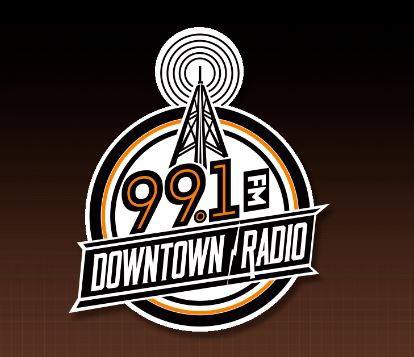Here’s the hard truth: radio is becoming more and more obsolete. People can plug their phones into their cars and create their own kinds of stations that play only the music they want to hear, and customizable internet radio stations have become huge. With all these other options, it is no wonder that radio has started to fade out. And it’s a shame.
Radio can connect people without them even knowing it. It can be used to entertain or to educate, and it can be a platform for conversations on topics that might be considered controversial.
Tucson has a decent number of radio stations that vary quite a bit, but I often find myself skipping through them over and over, being chased off by ads or songs that have been pounded into my head. FM station 99.1 KTDT, or Tucson’s Downtown Radio, is trying to be different.
Jason LeValley, the board president and program director of Downtown Radio, started the project in January of 2011 after President Barack Obama signed the Local Community Radio Act into law. This opened the airways for hundreds of small, local Low Power FM stations. Since then, LeValley has jumped through hoops created by the Federal Communications Commission for a little over four years and now has his radio station on air. The station had its first broadcast Sept. 14 and is run out of a basement downtown.
“I wanted to create a station that’s completely non-commercial. A station that doesn’t play any of the tired, old, overplayed rock songs or any of that top 40 crap. And so that’s what downtown radio is,” LeValley said. “Listeners are exposed to great music that they have never heard of or didn’t know existed and also exposed to awesome local artists.”
Downtown Radio isn’t limited to strictly rock. The music played on the station ranges from alternative to more hardcore rock with a local band played once every hour. For six of the seven days a week they focus primarily on rock music, but on Sundays, they open up the station for other genres.
LeValley wanted a station that is not only open to different kinds of music, but also addresses issues he feels passionately about. Before he became involved in radio, LeValley received a bachelor’s degree from the University of Redlands, California, and later a master’s in counseling from the University of Santa Clara to become a high school counselor.
“We plan to focus on helping to connect those in need of mental health services with the organizations who can help them,” Tucson’s Downtown Radio’s website states. “A lot of people are suffering needlessly, and we believe we can make a difference by providing those individuals with resources that can help.”
The station will have live interviews as well as prerecorded segments with people who have lived with mental health issues or have seen a loved one suffer in order to create a dialogue about the subject among its listeners. Understanding its importance, LeValley aims to educate and expose the Tucson community to the importance of mental health.
“The whole idea behind it is we are trying to reduce the stigma that is associated with seeking help for emotional or mental health issues because everyone has had a time in their life when they would have benefited from talking to someone about their problems,” LeValley said.
“It’s like there is something to be embarrassed about, and it shouldn’t be that way.”
Downtown Radio promotes good music, local artists and mental health and the issues around it. To those of you who have given up on radio, Jason has a message:
“Give us a chance. We are making radio fun again.”
Follow Thea Van Gorp on Twitter.









